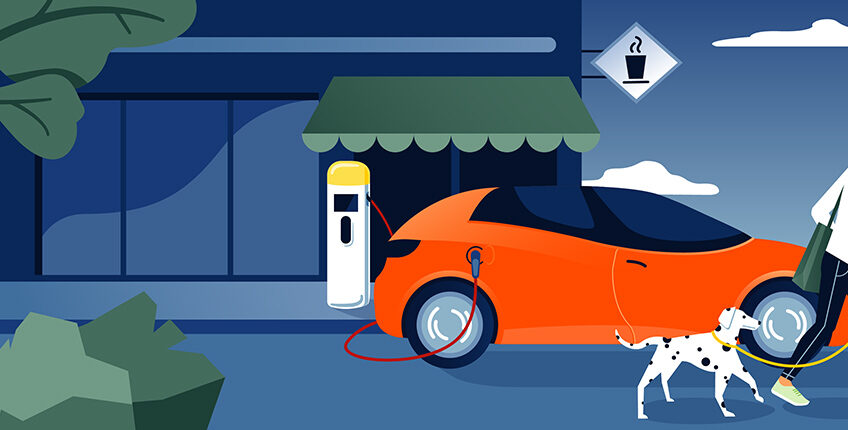A little less than a year ago, in November 2020, the German Federal Ministry of Transport and Digital Infrastructure (BMVI – Bundesministerium für Verkehr und digitale Infrastruktur) launched its first funding programme for the installation of charging points at private residential buildings.
By the end of the funding programme, applications for almost one million charging points had been submitted to the KfW project management agency and approved. More than 175,000 of the charging points are already in operation.
The federal government supported the purchase and installation of private charging stations for electric cars (mostly so-called wallboxes) with a subsidy of 900 euros per charging point. Due to the high demand, the funding volume of the programme was gradually increased from originally 200 million to a total of 800 million euros. According to past experience, not all approved funding measures are actually implemented by all applicants, so that ultimately a total of approximately 900,000 new charging points are expected to be installed.
Federal MinisterAndreas Scheuer: “Our funding programme for private wallboxes is an absolute success story. Due to the great demand, we not only topped up our funding amount twice to a total of 800 million euros, but also caused the KfW application portal to be temporarily overloaded at the beginning. This is unprecedented and shows that we are on the right track with our funding scheme. Our assessment: Some 900,000 new charging points have been made available at people’s homes, and that in less than a year. This trend must be continued by the next federal government. Because only with the right incentives can we get people to switch to climate-friendly e-cars.”
Kurt-Christoph von Knobelsdorff, Managing Director of NOW GmbH: “The enormous demand for this funding programme and the rapidly increasing registration figures for e-vehicles prove it: The mobility transition is in full swing. With the processing of many hundreds of thousands of applications in just one year, this programme is also an excellent example of an effective and efficient funding measure.”
Johannes Pallasch, Management Team Spokesperson for the National Centre for Charging Infrastructure: “Charging at home is an important use case for charging infrastructure. The vast majority of all charging takes place in the private sphere. Charging infrastructure must be created wherever cars are parked for long periods of time anyway. Driving off with a full charge and recharging at fast charging stations for longer distances – that is how charging becomes easy and reliable.”
About the funding programme
The “Charging Stations for Electric Cars – Residential Buildings” (“Ladestationen für Elektroautos – Wohngebäude”) funding programme was open to investment scheme implementers (e.g. private individuals, homeowners’ associations, housing companies, housing cooperatives and property developers) for the installation of a charging station for electric cars in the non-publicly accessible area of owner-occupied or rented residential buildings.
The eligible charging stations had to provide exactly 11 kilowatts of power, draw electricity from renewable sources and be controllable to ensure that the subsidised charging facilities can be digitally networked and controlled. This allows the load to be distributed intelligently and in a way that benefits the grid, and enables electricity from renewable sources to be integrated more easily.
Other support programmes
In addition to charging at home, the BMVI is also supporting the accelerated expansion of charging infrastructure in other relevant applications, such as publicly accessible charging infrastructure. A funding guideline will also be launched shortly to support the development of charging infrastructure for municipalities and small and medium-sized enterprises (SMEs) at employee car parks or for company fleets.
Further information (in German) on current funding programmes for the development of charging infrastructure: www.nationale-leitstelle.de/foerdern


